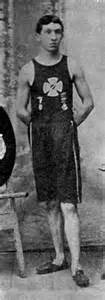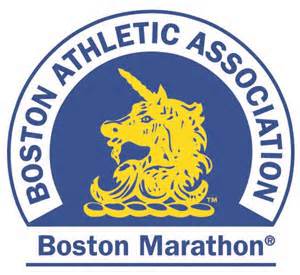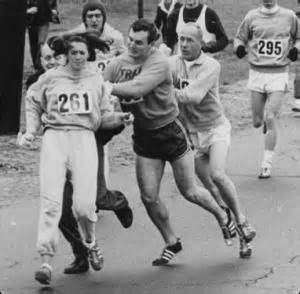The Boston Marathon
The Boston Marathon is one of the world's most iconic races. Dating to 1897, it has become for many runners the pinnacle of achievement. The race annually attracts the best of the best, both professional and amateur. The race is run each year on Patriots' Day, a state holiday in Massachusetts celebrated on the third Monday in April. The first modern Olympic Games took place in Athens in 1896. One of the events that year was the marathon, roughly following the steps taken by Phedippides, who ran the roughly 25 miles from Marathon to Athens in 49 B.C. to announce the Athenians' victory over the Persians. The first winner of the Olympic marathon was a Greek peasant named Spiridon Louis.
The race has been run every year since then, with one exception: In 1918, organizers canceled the race entirely, to make way for a road relay for American servicemen, who competed in full uniform. A similar cancellation decision was not made during World War II. The course was lengthened in 1924 to match the Olympic standard, which had been lengthened to the now-familiar 26.2 miles.
The race has become so popular, in fact, that organizers have introduced a qualification system. Runners have to run under a certain time on the clock in another race in order to qualify for Boston. (A Boston qualifying time is called a BQ.) The race also allows entries associated with certain volunteer and charity groups. Routinely, more than 20,000 runners toe the line on race day.
American Clarence DeMar has won Boston the most, seven times. He won in 1911, 1922–1924, 1927–1928, and 1930. Bill Rodgers of the U.S. (1975 and 1978–1980) and Kenya's Robert Cheruiyot (2006–2008 and 2010) have won the Boston Marathon four times. Runners from Africa have dominated the race in the past few decades. Since 1988, only two winners have not come from either Kenya or Ethiopia. The last American winner was Greg Meyer, in 1983. The women's winner with the most titles is Kenya's Catherine Ndereba (2000, 2001, 2004, and 2005). Americans Bobbi Gibb (1966–1968) and Sara Mae Berman (1969–1971), Rosa Mota of Portugal (1987, 1988, and 1990), Germany's Uta Pippig (1994–1996), and Fatuma Roba of Ethiopia (1997–19999) have won three times. The last American winner was Lisa Weidenbach, in 1985. Boston was the first major marathon to include a wheelchair division. The first wheelchair-bound athlete to win was Bob Hall, in 1975. |
|
Social Studies for Kids
copyright 2002–2024
David White




 Word of the marathon spread round the world, and members of the Boston Athletic Association, formed in 1887, decided to have their own long-distance race the year after the Olympics. The first Boston Marathon, in 1897, was called the B.A.A. Road Race, and it was 24.5 miles. The race was part of the B.A.A. Games. The winner that year, in which only 15 runners took part, was John McDermott, in a time of 2 hours, 55 minutes, 10 seconds.
Word of the marathon spread round the world, and members of the Boston Athletic Association, formed in 1887, decided to have their own long-distance race the year after the Olympics. The first Boston Marathon, in 1897, was called the B.A.A. Road Race, and it was 24.5 miles. The race was part of the B.A.A. Games. The winner that year, in which only 15 runners took part, was John McDermott, in a time of 2 hours, 55 minutes, 10 seconds. For most of the years it has been run, the Boston Marathon has not offered cash awards. In the 1980s, however, some of the top runners refused to run Boston if the race wouldn't pay the top finishers. As a result, cash prizes are now awarded.
For most of the years it has been run, the Boston Marathon has not offered cash awards. In the 1980s, however, some of the top runners refused to run Boston if the race wouldn't pay the top finishers. As a result, cash prizes are now awarded. Women were long not allowed to run in the race. Robert "Bobbi" Gibb is thought to be the first woman to run the whole race, in 1966. Katherine Switzer was the first woman to run with a race number. She had registered as "K.V. Switzer." During the race, she resisted an attempt by a race organizer to remove the race number (right). Women were officially allowed to run in 1972. The winner that year was Nina Kuscsik of the U.S.
Women were long not allowed to run in the race. Robert "Bobbi" Gibb is thought to be the first woman to run the whole race, in 1966. Katherine Switzer was the first woman to run with a race number. She had registered as "K.V. Switzer." During the race, she resisted an attempt by a race organizer to remove the race number (right). Women were officially allowed to run in 1972. The winner that year was Nina Kuscsik of the U.S. 
